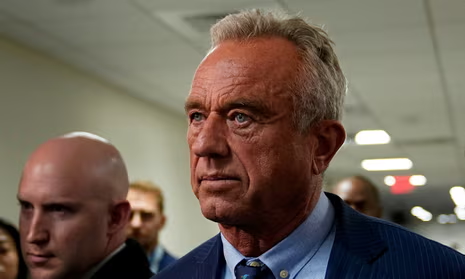R. Kelly, the well-known recording artist, faced a serious health scare while in federal custody, leading to his hospitalization at Duke University Hospital in Durham, North Carolina. According to his legal team, he suffered what they call a near-fatal medication overdose on June 13. This incident, they argue, points to misconduct by staff at the Federal Correctional Institution in Butner, where Kelly is serving his 30-year sentence.
Court documents reveal that Kelly, whose real name is Robert Sylvester Kelly, was placed in solitary confinement on June 10. He was reportedly carrying prescription medications for anxiety and sleep disorders, among other conditions, when this happened. His lawyer, Beau B. Brindley, notes that Kelly showed these medications to the staff, an event that was captured by the facility’s surveillance cameras.
Brindley claims that prison staff later approached Kelly and gave him an additional dose of medication, telling him to take it. On June 12, following their instructions, Kelly took the prescribed dosage. The next day, he began experiencing symptoms such as dizziness, vision problems, and eventually lost consciousness.
Kelly collapsed in his cell and was taken on a gurney to the prison’s medical facility. The staff there reportedly decided that the facility could not provide the care he needed. During his ambulance ride to Duke University Hospital, Kelly allegedly overheard a staff member remark, “This is going to open a whole new can of worms.”
Once hospitalized, Kelly was told that the dosage he received was far more than safe, resulting in an overdose. His lawyer also alleges that prison officials have previously removed Kelly from necessary blood-thinner medication and denied him surgery for blood clots in his legs and lungs. This troubling series of events has led Kelly’s team to file an emergency motion for his release due to safety concerns.
The Bureau of Prisons, when approached for comment, declined, citing “privacy, safety, and security reasons.” However, prosecutors were quick to dismiss Kelly’s claims, stating, “This is the behavior of an abuser and a master manipulator on display.” Kelly, who was convicted in September 2021 on nine counts including racketeering and violations of the Mann Act, is currently serving a 30-year sentence.
Kelly’s legal team argues that these incidents occurred shortly after he filed a motion accusing the Bureau of Prisons of conspiring with another inmate to have him killed. They are now requesting his transfer to home confinement, citing continuous threats to his health and safety. The unfolding drama around Kelly’s incarceration adds yet another chapter to his already troubled story.
The incident has sparked discussions about the treatment of inmates and the responsibilities of prison staff in ensuring their safety. Kelly’s legal battles continue to draw attention, and his team remains adamant about the alleged threats to his well-being. While the Bureau of Prisons has remained tight-lipped, the conversation surrounding inmate rights and medical care in prisons is far from over.
The allegations against the prison staff have raised questions about the protocols in place for administering medication to inmates. With Kelly’s health scare making headlines, the focus now shifts to how such incidents can be prevented in the future. The legal proceedings are ongoing, with Kelly’s team working tirelessly to secure what they believe is a safer environment for him.
The case has also highlighted the challenges faced by high-profile inmates in the prison system. Kelly’s situation is unique, but it underscores the broader issues within the system regarding healthcare access and inmate safety. As his legal team presses on, the implications of this case may have a lasting impact on how prisons handle similar situations.
The public continues to watch closely as new details emerge, with many questioning the integrity of the prison system. Kelly’s supporters argue that his rights have been violated, while others remain skeptical of his claims. The controversy surrounding his imprisonment serves as a reminder of the complexities involved in balancing justice and humane treatment within the penal system.
Despite the serious nature of the allegations, the Bureau of Prisons has not made any public moves to address the concerns raised by Kelly’s legal team. The clash between Kelly’s team and the authorities reflects the often contentious nature of prison-related legal battles. As the story unfolds, it remains to be seen how the justice system will respond to these serious accusations.
The ongoing legal proceedings will likely keep Kelly’s case in the spotlight, as both sides prepare for what could be a lengthy battle. The implications for Kelly’s future are uncertain, but his team remains steadfast in their pursuit of justice. With significant attention on this case, the outcome could set a precedent for how similar cases are handled in the future.
As Kelly’s health and safety hang in the balance, his case continues to be a focal point for discussions on inmate rights and prison reform. The allegations of misconduct have only intensified the scrutiny on the prison system. As Kelly’s team fights for his release, the broader conversation about justice and inmate care is likely to continue gaining momentum.



